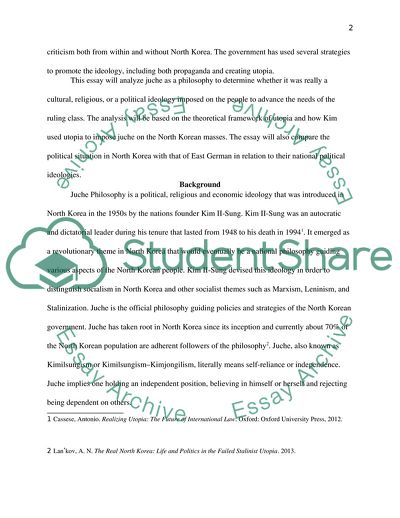Cite this document
(North Korea Juche Ideology: Culture/Religion or Propaganda Essay Example | Topics and Well Written Essays - 2750 words, n.d.)
North Korea Juche Ideology: Culture/Religion or Propaganda Essay Example | Topics and Well Written Essays - 2750 words. https://studentshare.org/politics/1826956-north-korea-juche-ideology-culturereligion-or-propaganda
North Korea Juche Ideology: Culture/Religion or Propaganda Essay Example | Topics and Well Written Essays - 2750 words. https://studentshare.org/politics/1826956-north-korea-juche-ideology-culturereligion-or-propaganda
(North Korea Juche Ideology: Culture/Religion or Propaganda Essay Example | Topics and Well Written Essays - 2750 Words)
North Korea Juche Ideology: Culture/Religion or Propaganda Essay Example | Topics and Well Written Essays - 2750 Words. https://studentshare.org/politics/1826956-north-korea-juche-ideology-culturereligion-or-propaganda.
North Korea Juche Ideology: Culture/Religion or Propaganda Essay Example | Topics and Well Written Essays - 2750 Words. https://studentshare.org/politics/1826956-north-korea-juche-ideology-culturereligion-or-propaganda.
“North Korea Juche Ideology: Culture/Religion or Propaganda Essay Example | Topics and Well Written Essays - 2750 Words”. https://studentshare.org/politics/1826956-north-korea-juche-ideology-culturereligion-or-propaganda.


